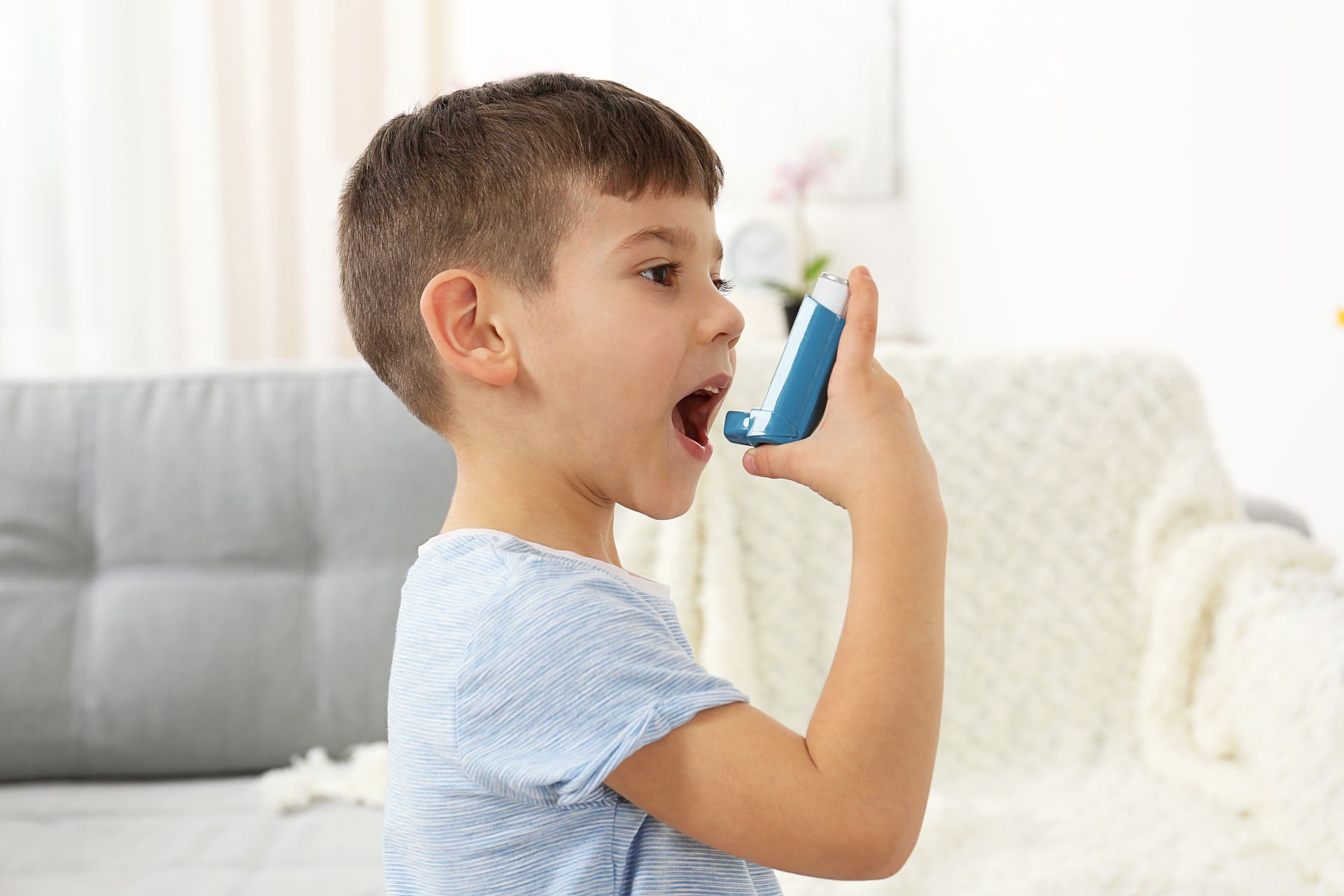Services
Allergy Management
Allergies can have a large impact on daily life, causing disruptive symptoms that hinder activities and overall well-being. From the constant sneezing due to environmental allergies to the potentially life-threatening consequences of food allergies, the identification and management of allergens is essential for maintaining a high quality of life.
At Allergy & Asthma Specialists, P.A., you work closely with an allergist to pinpoint triggers and come up with an individualized treatment plan to help you regain control and minimize allergic episodes. We are capable of testing for over 40 environmental allergies, including pollens, molds, and danders, as well as a list of over 65 foods.
Why get tested for allergies?

You are experiencing symptoms including:
- Itchy Eyes
- Runny Nose
- Hives
- Throat Clearing, Phlegm
- Sinus Pressure
- Rash upon exposure to certain metals
After eating certain foods, you experience:
- Hives - all over the body, especially behind the ears and belly
- Itchy throat, itchy ears
- Throat feels like it’s closing/swelling
After a bee sting, you have symptoms of:
- Itchy, hives Throat closing/swelling
- Anaphylaxis reaction, needs to be seen in the hospital
What to expect at an appointment?
Vitals Check - Blood pressure, pulse, respiratory rate, and medical history review.
Detailed Health History - Review new patient form, symptoms, severity, allergen exposure, and past treatments.
Physical Examination - Eyes, ears, nose, throat, lungs, and skin inspection for allergic signs.
Personalized Testing Plan - Decide on necessary tests (skin, blood, lung function, imaging) for diagnosis and tailored treatment. Skin testing is one of the most common and accurate methods used to identify allergic triggers. Skin testing involves introducing a small amount of allergen just under the skin surface by pricking the skin with a drop of the allergen extract. The prick tests are done with a sterile, disposable plastic prick test device that looks like a small toothpick. The sensation is generally not uncomfortable; if the patient is allergic to the substance, itching of a mild to moderate degree may be experienced.
Headache Management
Headaches and migraines can rob you of your ability to function and enjoy daily life. The severe, throbbing pain, sensitivity to light and sound, and potential for nausea and vomiting with migraines can disrupt your work, relationships, and overall well-being. You deserve relief through headache management.
What to expect at an appointment?

Our headache specialist will conduct a comprehensive review of your detailed headache history based on the intake forms you completed. This in-depth evaluation is crucial for accurately diagnosing whether you are experiencing tension headaches or migraines. Your specialist will ask about the frequency, location, and specific qualities of your headache pain, as well as associated symptoms like nausea, light/sound sensitivity, and if any triggers can be identified. They will also discuss how these headaches impact your daily functioning and any past treatments you've tried.
What treatments are available?
Based on the type of headache you are experiencing, the headache specialist will determine treatment for prevention. This often includes the use of injectable biologics, which can be received in our clinics and tend to happen monthly or twice a month.
Asthma Management
Asthma can be an incredibly disruptive and even terrifying condition to live with. The wheezing, chest tightness, and shortness of breath that come with asthma attacks make even basic activities like walking or sleeping difficult. Living in fear of your next asthma episode and feeling like you can't catch your breath can take an immense physical and emotional toll. You deserve to break free from asthma's constraints and breathe easily every day.
What to expect at an appointment?

At your appointment, a lung function test (known as spirometry) is conducted to measure airway obstruction and response to treatment with a bronchodilator. Staff can coach children as young as 5 to do reliable spirometry. These lung function tests are important in making the initial diagnosis of asthma, determining the severity, and allowing providers to determine the best course of action for management.
What treatments are available?
Treatment for asthma can vary depending on the severity and previous treatments. Management could include an inhaler, a long-term medication, or injectable biologics on a monthly basis to control asthma.


